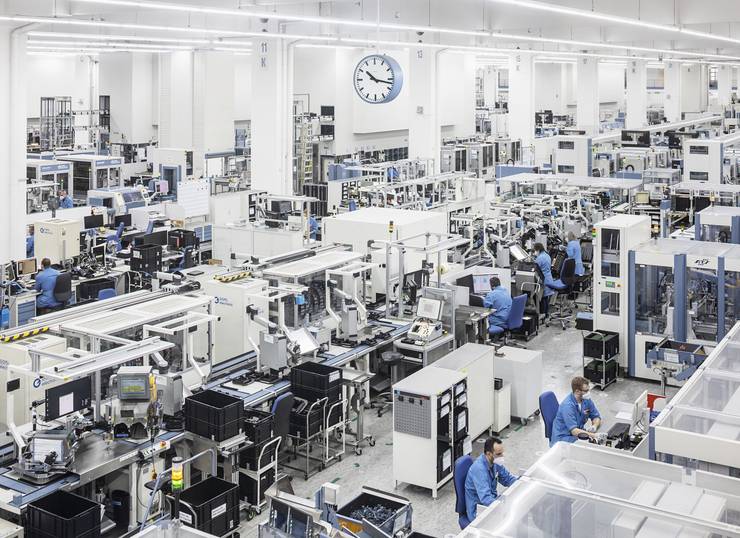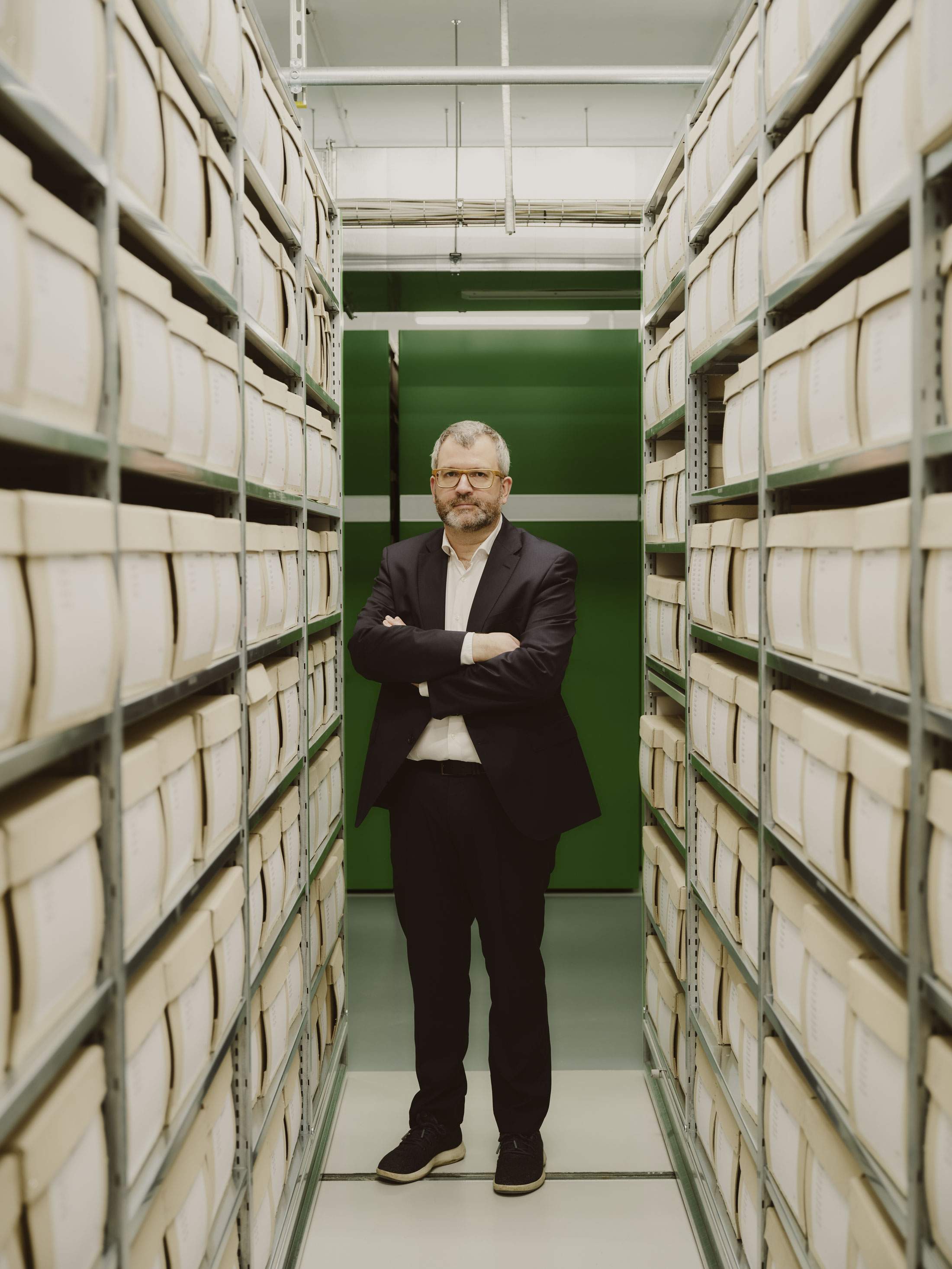SIEMENS Monocle
Transforming the everyday
A new digital frontier: how technology, collaboration and empowerment are working to bring about sustainable transformation.
Siemens has powered industrial innovation since 1847. It built the world’s first electrified railway line in 1881 and its technologies have transformed the ways in which we communicate. Today, the technology company is using digital means to drive sustainable business and transform the sectors that form the backbone of our economy, such as industry, infrastructure and transportation, which account for roughly three quarters of the world’s CO2 emissions. Siemens aims to help reduce those emissions.

There is a place that perfectly reflects Siemens’ new drive to digitise the backbone of the economy. The Electronics Works Amberg (pictured) was founded in 1989 and recently included in the World Economic Forum’s Global Lighthouse Network list of factories. It is a blueprint for what technology can do today to drive sustainability. This is where the latest technologies are being used to spearhead the digital transformation of industry. The production of electronics at Amberg is automated by intelligent machines, with 75 per cent of its value chain handled independently. The result? It has achieved a 140 per cent factory output at double product complexity – all without an increase electricity or resource consumption.
Through history, innovation has advanced society. Now it is about using technology with purpose to drive sustainable transformation.
From building trains and making manufacturing more efficient to creating more sustainable and interconnected cities, Siemens technologies continue to play a role in an array of economic settings. Florian Kiuntke is head of the Siemens Historical Institute, an extensive in-house archive of the German company’s 175-year history. It houses more than one million photographs, reams of historical documents and more than 8,000 films that chronicle the firm’s storied industrial past. “Transforming the everyday is anything but new territory for Siemens,” says Kiuntke. “On the contrary, it has always been an integral part of Siemens’ DNA.”
We commute in trains, cars and planes. We rely on advanced building technologies for a comfortable standard of living. We consume products made by automated manufacturing systems. And we rely on healthcare services that could prove fatal in the absence of absolute precision. But we often take them for granted. The world, however, is at an inflection point, where ubiquitious technologies and assets, when digitised, are becoming the foundation for tackling the major challenges of our times.
The evolution of modern technologies stretches back at least 200 years. In the late 18th century, during the first industrial revolution, steam power was harnessed to drive a shift from manual to mechanical production. Then, in the late 19th century, came the second industrial revolution. Companies such as Siemens built on the advances of the past to change society once again, through the electrification of industrial production and later via automation during the third industrial revolution. These advances raised standards of living around the world, lifted people out of poverty and, ultimately, enabled a more integrated global society and economy.


“For us, what all revolutions have in common is that they are integrated into phases of social and technological upheavals. They do not take place in a vacuum,” says Kiuntke. Innovation is a response to major social and economic forces for change and improvement. “Today, businesses will need to become more resource efficient. We can’t continue to have economic growth at the expense of our planet and its natural resources,” says Kiuntke. “Instead, we need sustainable growth. We need to do more, and we need to do it while using less.”
Enter the fourth industrial revolution. Companies such as Siemens have seized the potential of digital transformation to create a more sustainable, efficient and liveable world. “We are seeing a fundamentally different phenomenon [than in the past],” says Marshall W Van Alstyne, a professor in digital economies at Boston University and co-author of the best-selling book The Platform Revolution. “In order to innovate properly, you want to harness the best ideas,” says Alstyne. “And you reward parties for joining you in partnership.”
Siemens aims to do its part in this story by building a model that users can trust; one that’s open, where all participants can shape the industries and infrastructures of the future and benefit society at large.
Over the next five issues, Monocle and Siemens are partnering to explore how the fourth industrial revolution is shaping up. We’ll look at today’s trends and at the potential, not only of digital technologies and of working together in ecosystems, but also of communities, individuals and innovation to craft a better world.
Keep an eye out for the second part of our six-part series in Monocle’s May 2022 issue

